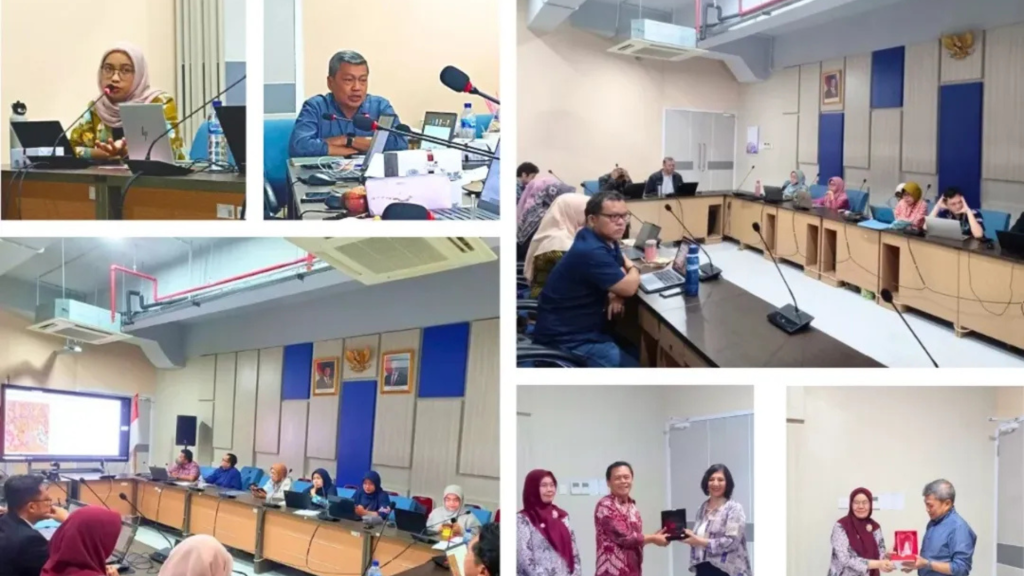Jakarta, 10 April 2025 – The urgency of transitioning Indonesia’s textile sector toward sustainability took center stage in the hybrid colloquium “Textile Transformation: Indonesia’s Path to a Circular Economy in an Uncertain Global Landscape.” The event was a collaboration between the Research Center for Behavioral and Circular Economics – Research Organisation for Governance, Economics and Social Welfare, National Research and Innovation Agency (RC BCE – RO GES – BRIN) and James Cook University.
Industry Growth and Sustainability Challenges
Hosted at the Widya Graha Building, BRIN Central Jakarta, and joined by participants via Zoom, the colloquium attracted over 80 attendees, including academics, policymakers, and industry practitioners. Together, they explored how Indonesia’s textile, apparel, and footwear (TAF) industry can navigate global disruptions while embracing circular economy principles.
Indonesia’s TAF industry continues to expand, with the domestic market projected to reach US$9.51 billion by 2029, growing at a CAGR of 4.26%. However, this growth brings pressing challenges. Globally, the TAF industry generated 95 million metric tons of waste in 2023, underscoring the urgent need for sustainable transformation.
Against this backdrop, speakers highlighted the textile sector’s pivotal role in contributing to Indonesia’s climate commitments, while also strengthening competitiveness through innovation and circular strategies.
Insights from Experts and Institutions
The colloquium featured presentations from distinguished speakers representing James Cook University (Australia & Singapore), Bappenas, the Ministry of Industry, Rantai Tekstil Lestari (RTL), and BRIN researchers.
Key themes included:
Indicators of readiness for circular economy adoption in Indonesia’s textile industry.
The importance of aligning with international standards such as ISO to accelerate sustainability practices.
The role of policy frameworks developed by the government to support systemic change.
Industry-driven initiatives already being implemented to reduce waste and encourage circularity.
Discussions underscored that the transformation of Indonesia’s textile sector cannot be achieved by one actor alone. Collaboration between government, industry players, academia, and civil society is essential to build a strong ecosystem for sustainable textiles.
As one of the panelists, Rantai Tekstil Lestari (RTL) emphasized the importance of knowledge exchange and multi-stakeholder partnerships to accelerate circular economy adoption. By bridging perspectives across the value chain, RTL continues to advocate for policies and practices that ensure Indonesia’s textile industry remains competitive while minimizing its environmental footprint.

Looking Ahead
The colloquium concluded with a shared recognition: the transition to a circular economy in textiles is not only an environmental necessity but also a strategic opportunity for Indonesia to lead in sustainable innovation within the global market.
The event served as a platform to spark fresh ideas, foster dialogue, and strengthen partnerships that will shape the future of a resilient and sustainable textile industry.


